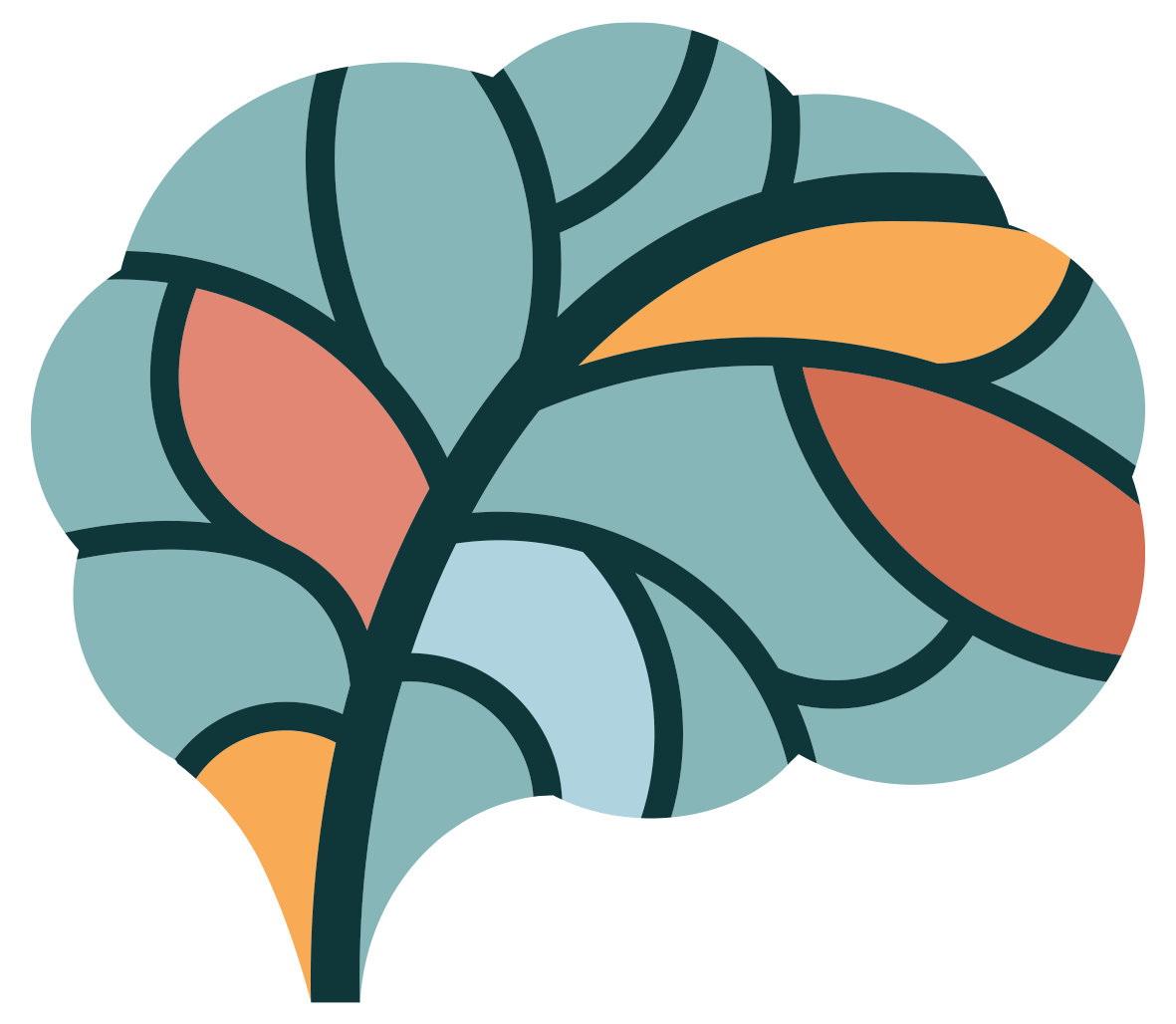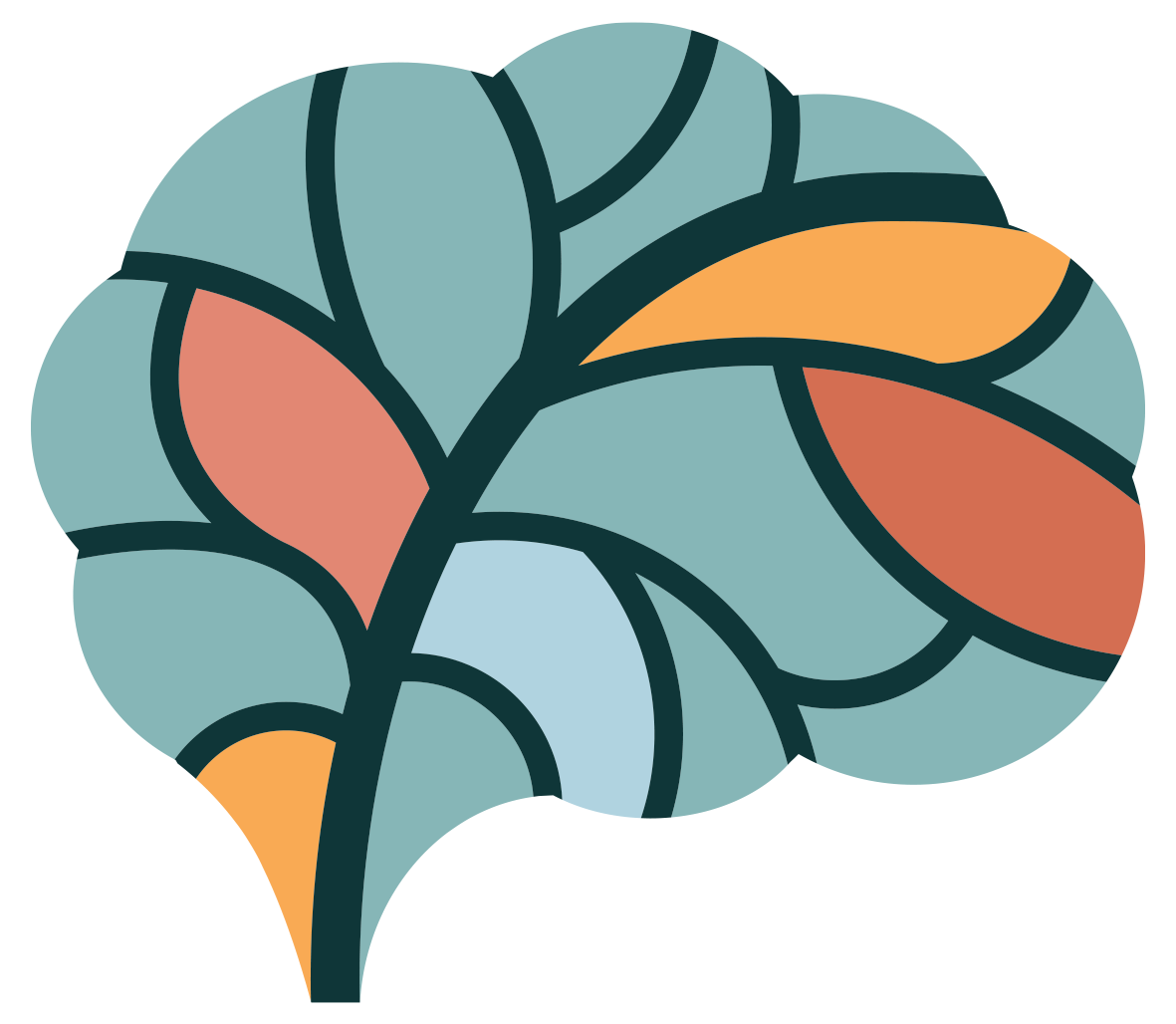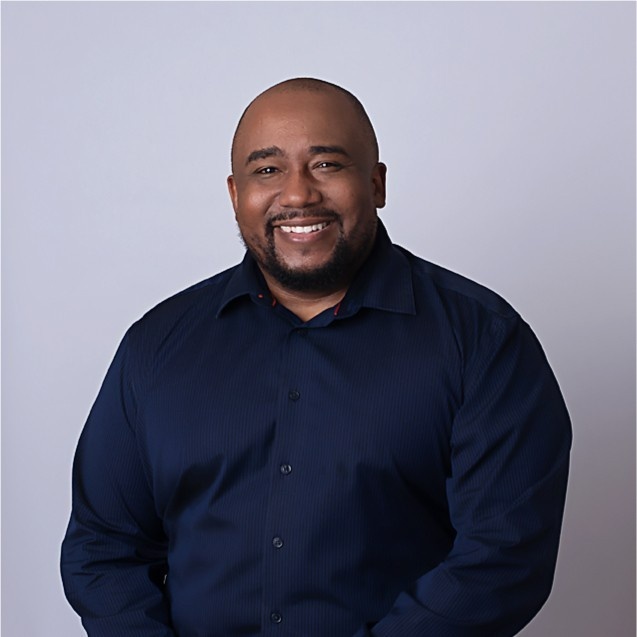Healing From Sexual Abuse And Reproductive Trauma
Sexual trauma can imprint itself in our muscle memory and can be gently released through somatic movement.
"Our job is not to deny the story, but to defy the ending — to rise strong, recognize our story, and rumble with the truth until we get to a place where we think, Yes. This is what happened. This is my truth. And I will choose how this story ends.” - Brené Brown
Trauma doesn’t only affect our minds; it can profoundly affect our unconscious bodily processes too (van der Kolk, 2014).
In the words of Caroline Myss, “As our lives unfold, our biological health becomes a living, breathing biographical statement that conveys our strengths, weaknesses, hopes, and fears.”
Trauma can:
- Cause us to develop PTSD – as is seen in 10% to 23% of survivors (Bryant et al., 2010).
- Prevent us from verbalizing our feelings and memories (van der Kolk, 2014).
- Put us in a cycle of fight-or-flight responses that can make it difficult to enjoy a regular, everyday life (Lorenz et al., 2015).
Survivors of sexual trauma can experience:
- Challenges of feeling a sense of safety and trust.
- A lack of interest in sex (Maltz, 2002).
- Difficulty becoming aroused and experiencing pleasure (Maltz, 2002).
- Problems with sustaining or establishing intimate relationships (Maltz, 2002).
Often, survivors can experience feelings of shame when talking about their trauma, and this shame can lead to re-traumatization (Schomerus et al., 2021).
Fortunately, talking about our trauma is not the only way to heal.
Modalities that work with somatic symptoms – such as pelvic floor therapy – can provide us with the necessary tools to help calm the nervous system and break the cycle of fight-or-flight (Lorenz et al., 2015).
By using these non-verbal modalities, we can work immediately with our dysregulated nervous system, thereby treating our somatic symptoms and triggers to support our bodies in moving to a state of emotional homeostasis (van der Kolk, 2014).
Rewire Trauma Therapy’s Healing From Sexual Abuse and Reproductive Trauma program can support us in moving to this state.
The program assists in healing the effects of sexual and reproductive trauma, gently mending our relationship with sex and intimacy (Maltz, 2002).
Our multidisciplinary approach aims to move us towards appreciating our bodies and sexuality as a sanctuary built with strength and resilience.
The program is comprised of two components: The practical component includes several non-verbal exercises, including pelvic floor therapy, mindfulness-based rewriting of our sexual script, and a series of neuroplasticity exercises. The theoretical component includes nine expert-led theory modules, offering insight into the complex nature of sexual and reproductive trauma and exploring different ways we can begin to rewrite our sexual scripts and reconnect to our bodies.
Together, the components of the program seek to help us recognize our stories, define our truths, and discover inner resilience.
Introducing Healing From Sexual Abuse And Reproductive Trauma
Nine Expert-Led Modules:

Module 1: Defining Intimacy After Trauma With Dr. Kat Smith (30-min)
- Seeking Therapy
- The Power and Benefits of Touch
- Intimacy Wheel
- Types of Intimacy
- Intimate Process

Module 2: Intimacy After Trauma: The Thriving Survivor With Dr. Kat Smith (23-min)
- The Thriving Survivor
- Dealing with Shame and Guilt
- Abuse and Parenthood
- Important Takeaways

Module 3: Understanding The Impact Of Sexual Trauma With Dr. Jason Jones (38-min)
- Defining Sexual Trauma
- Understanding the Impact
- Roles and Responsibilities of Clinicians

Module 4: Recovering And Thriving After Sexual Trauma With Dr. Jason Jones (35-min)
- Treating Sexual Trauma
- Surviving and Thriving
- Important Takeaways

Module 5: Rewriting Our Sexual Script With Kelvin Pace (40-min)
- Feelings Associated with Sexual Assault
- Coming to Peace with Ourselves
- Mindfulness Techniques for Sexual Healing
- How Supportive Partners can Facilitate their Partner’s Sexual Healing
- Shifting an Unhealthy Narrative or Pattern into a Healthy and Positive One
- The Importance of a Therapeutic Team
- Creating a Safe Space for Clients

Module 6: Understanding the Scope of Male Sexual Abuse With Christopher Anderson (24-min)
- Current Discourse about Male Abuse
- Scope of Abuse of Men

Module 7: The Challenges around Disclosure of Male Sexual Abuse With Christopher Anderson (42-min)
- Dynamics and Common Blocks to Disclosure
- How Do We Define Trauma?
- Best Practices for Working with Male Survivors
- BPT - A Trauma-Informed Response to Disclosure

Module 8: Healing From Trauma Through Pelvic Floor Physiotherapy With Chaya Notik (46-min)
- Anatomy and Function of the Pelvic Floor
- How Pelvic Floor Physiotherapists Can Help Survivors
- Exploring the Impact of Trauma
- Eliminating Tissue Trauma Through a Full-Body Approach

Module 9: Women's Return To Sovereign Birth With Rivka Cymbalist (35-min)
- Six Principles to Guide a Trauma-Informed Approach
- What Should Birth Attendants Ask Their Clients
- How a Birth Attendant Can Support Their Client Through Pregnancy, Labor, and Birth
- Reparative Birthing Experiences
- How Trauma Can Affect Pregnancy, Labor, and Birth
Seven Neuroplasticity Exercises:

Technique 1: Working With Feelings Of Regret
Regret can weigh heavy and prevent you from being present. Acknowledge your emotions using movement to unburden yourself.

Technique 2: Working Through Feelings Of Guilt
Make peace with feelings of guilt by calming the nervous system through movement, meditation, breathwork, and sound.

Technique 3: Healing From Feelings Of Shame
Release feelings of shame and move emotion through the body using trauma-informed yoga.

Technique 4: Working Through Trauma After Sexual Abuse
Reintegrate into your body using dance and movement psychotherapy techniques. By implementing various touch practices, recover a sense of safety and comfort in yourself.

Technique 5: A Special Focus On Fetal Loss Body Symptoms
Processing loss due to birth trauma can be confusing and uncertain. This video focuses on the mental and physiological symptoms of birth trauma and how they can impact your life.

Technique 6: The Rewire Trauma Therapy Exercises For Pelvic Trauma Healing
Find safety and power through neuroplasticity exercises and learn skills to heal a traumatized pelvic floor.

Technique 7: Meeting the Body with Curiosity
Engaging all your senses, move your body in a self-soothing practice to respond to feelings of anxiety or overwhelm with gentle curiosity.
Our Programs Come With:
-
A private supportive community
-
Lifetime access to the program and all future updates
-
Technical support via email and Facebook messenger
-
Start at any time at your own pace
-
A 72-hour money-back guarantee
- A 30-day program exchange policy
Register Here for $240
You’ll get 9 expert-led modules, 7 neuroplasticity exercises, and learning tools you can immediately integrate into your trauma toolbox to help you work more effectively with the trauma-affected nervous system.
Meaningful Feedback
“It helps me to feel the body and everything that happens in it, to slow down, and be focused. I found the tools of Rewire Therapy very practical and it suits me.”
Milena Blankman, Survivor
"I would think if someone was new to therapy, these exercises would help calm their mind and body so they could be more vulnerable and become more conscious and aware of their thoughts and feelings. This is a great program and I hope people take advantage of it."
Matt Domyancic, Medically Retired Cop
"I notice that I am 'tolerating' more feelings and exploring them as being transient, also to see if they are information for the here and now or something else. The approach is so gentle that I forget the power of that. I am grateful and get that this is ongoing."
Liz Gow, Survivor
"The course was presented in a very fresh, interesting, and informative way. The panel was extremely caring, professional, and engaging. The theory, exercises, and bonus program exercises were a beautiful way to present such rich information."
Rita Ehrman, Survivor
"The tools I learned in your program helped me to feel less anxious, more connected to my body, helped me to sleep better, and have a little less pain. I will come back to these tools throughout my day and look forward to re-watching the videos."
Tracie Jones, Survivor
"It started to feel like I had a voice again, like I was important like my feelings did matter. My resolve grew to protect myself from this kind of unhealthy relationship in the future, and I started to become my own best friend with the love and reassurance I was learning to give myself."
Tikeke Ziemer, Survivor
“One of the greatest things I have noticed is that Rewire Trauma Therapy responds to every comment, either on Facebook, Instagram or through their programs… this makes me feel seen and heard… creates a beautiful space to heal in.”
Carrie Butler, Survivor
Register Here for $240
You’ll get 9 expert-led modules, 7 neuroplasticity exercises, and learning tools you can immediately integrate into your trauma toolbox to help you work more effectively with the trauma-affected nervous system.
Meet The Experts

Tanya Zajdel
RN, PSYCHIATRIC NURSE, FOUNDER OF REWIRE TRAUMA THERAPY
Tanya’s work with trauma healing and survivorship has been featured at the Tribeca Film Festival, CBC News, Vox Tablet, and Iheart Radio.
Tanya is a mental health worker, a women’s health nurse, and a published feminist author. Tanya focuses primarily on creating programs that facilitate trauma healing through creating new neural connections in the brain called 'neuroplasticity exercises'.
Her techniques combine various proven therapies to repair and reset the nervous system after trauma including somatic therapy, yoga, drama therapy, dance therapy, CBT, qigong, EMDR, vagal toning, authentic movement, and a combination of expressive, creative art therapies.

Dr. Jason Jones
REGISTERED PSYCHOLOGIST, AASECT CERTIFIED SEX THERAPIST, AND SUPERVISOR
Dr. Jason Jones has been a Registered Psychologist since 2012 and founded Loving Choices Psychology in 2017. He is an AASECT Certified Sex Therapist and Supervisor and a member of the Society of Sex Therapy and Research. He has received training from Sue Johnson, David Schnarch, Esther Perel, Marty Klein, George Faller, and others in sex therapy, couples counseling, family therapy, and body positivity. He completed a Doctor of Philosophy (Ph.D.) in Psychology from Northcentral University.

Kelvin Pace
MS, LPC-S, CST
Kelvin Pace, MS, LPC-S, CST Graduated with a master’s in clinical psychology from the University of Alaska Anchorage in 2009. He has been an LPC supervisor for two years and he has been an AASECT certified therapist for 3 years.
Kelvin has worked for a local non-profit delivering mental health services to children and young adults that have suffered from complex trauma. With a firm foundation in trauma, he delivers trauma-informed sex-positive therapy to his clients. His current focus is on mindfulness-based interventions to manage sexual concerns.

Chaya Notik
PHYSIOTHERAPIST
Chaya runs a physiotherapy clinic based in Montreal and is passionate about sharing physio and health tidbits and raising awareness about pelvic health.
People think that physical therapy is about getting rid of pain, but wellness encompasses so much more than that.
During treatments, she uses a biopsychosocial and a whole-person approach to ensure an optimal path for recovery. Chaya hopes her teaching material is a resource for you to enjoy, learn and share so that we can all grow and heal together.

Rivka Cymbalist
BIRTH ATTENDANT
Rivka Cymbalist is an experienced birth attendant who has facilitated childbirths for women from all over the world to give birth in their own unique and powerful way, respecting each woman’s individual power of choice, even in a patriarchal hospital system.
Rivka draws upon her experience attending over 500 births to help mothers-to-be and birth attendants better understand how to facilitate a mother’s true power of ‘sovereignty’ in pregnancy, birth, and motherhood.
Rivka is the author of ‘The Birth Conspiracy’, host of the ‘Baby Magic Podcast’ and she provides custom consults for women’s health, birth support and teaches doulas-to-be.

Dr. Kat Smith
DHS, ACS TEDX SPEAKER, AUTHOR, RESILIENT SURVIVOR, AND INSPIRING MOTIVATOR
Dr. Kat Smith, DHS, is a survivor, a human behavior expert, Author, TEDx Speaker, and international presenter. She is a show host and former co-host of a syndicated morning radio show with ABC Radio Networks, Inc., Dr. Kat is an engaging expert guest who is transparent and honest in sharing her truth and talking about difficult topics. Her presentations are inspiring, transformative and she delivers with wit and humor where appropriate. She has appeared on GMA, Huff Post Live, local GMT, Daybreak, Fox4, CW33 and she produces her recent show, ResilientLivingTV.

Christopher M. Anderson
SURVIVOR ADVOCATE
Christopher M. Anderson is a survivor of child sexual abuse and other traumas who has overcome many challenges to become an acclaimed advocate.
Christopher served as Executive Director of MaleSurvivor, a leading advocacy organization for male victims of sexual abuse, from 2012 until 2016. He is an expert on the sexual abuse of men and boys, the male experience of trauma, and best practices for prevention and healing. He has written numerous articles and opinion pieces on these issues and has worked to reform laws that shield abusers from justice.
Register Here for $240
You’ll get 9 expert-led modules, 7 neuroplasticity exercises, and learning tools you can immediately integrate into your trauma toolbox to help you work more effectively with the trauma-affected nervous system.
Frequently Asked Questions
How long do I get access to the program?
What is your refund policy?
Are the educators in this program licensed to guide me?
If I am not traumatized by any one experience but I’m looking to improve my overall mood and mental health, is this course still for me?
Can I use this course to support my loved one who struggles with mental health?
Is it better to combine various therapy techniques (as suggested in your program) to heal from my trauma, or is it better to stick with just one form of therapy?
Will I receive recognition of completion?
Do your programs contain only video content?
Can children participate in your programs?
Do you offer payment plans or scholarships?
Do you offer in-person sessions?
Register Here for $240
You’ll get 9 expert-led modules, 7 neuroplasticity exercises, and learning tools you can immediately integrate into your trauma toolbox to help you work more effectively with the trauma-affected nervous system.











